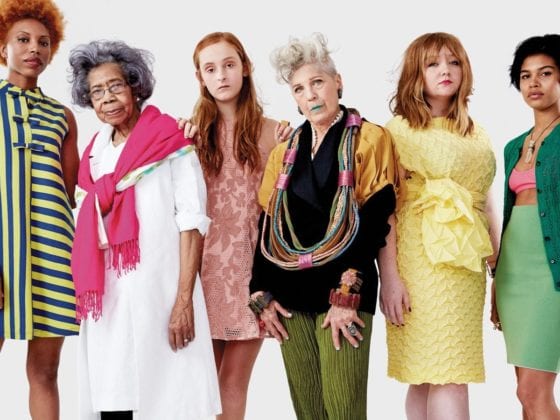So often we think we are being needy, when we are simply expressing normal and natural needs. We fear that we are asking for “too much” or if we depend on someone, then “we’ll end up pushing them away or losing our partner.” But the truth is, we all have needs in relationships. When we can own and express these needs clearly, we avoid the trap of neediness.
The conflict between needs and neediness is rooted in the myth of independence. We try to stand on our own two feet, living on the belief that we need to pull ourselves up by our boot straps. Instead, we’re continually drawn toward relationships and the vulnerability of emotionally depending on others.
This is because we are hardwired to desire closeness and intimacy. When we learn to honor this truth, we allow ourselves to step into healthy relationships where our needs can fully be met.

There are three primary needs that healthy and secure relationships prioritize. If you can get grounded in these, then you will succeed in showing your partner how to meet your needs (without ever feeling needy!).
1. Consistency and Reliability
To build, maintain and keep trust in a relationship, we need to experience consistency and reliability. And trust is a high priority need in relationships. It allows us to feel secure enough to step toward greater vulnerability. Without trust, relationships deteriorate.
Let your partner know that you need reliability in your relationship. Tell them that following through on their word, with actions, helps you trust and rely on them. You may need to be specific about which areas in your relationship you feel this is lacking. The art is asking for consistency without the added weight of criticism.
2. Accessibility and Responsiveness
It’s a primary need in relationships to feel heard and seen. When our partners are emotionally accessible and responsive, we experience a deep sense of being understood. If there are emotional blocks and walls that create disconnection, then it is impossible to feel securely connected. And when we aren’t feeling the vibe of connection, we start to wonder if we really do matter. This is where we often come across as needy through passive comments like, “You just don’t care” or “You never show me I’m special anymore.”
To avoid getting stuck in this neediness, practice being calm and clear. Look beyond the anger and defensiveness. Approach your partner from deeper emotions and try writing down what you really need. If you’re hurt because you’re lonely, then tell your partner directly that you need some time together. Or, when they get home from work, you would like them to connect with you before turning on the TV.

It’s a primary need in relationships to feel heard and seen. When our partners are emotionally accessible and responsive, we experience a deep sense of being understood.
3. Being Present and Engaged
At the beginning of relationships, we are very tuned into each other. We are nearly absorbed by infatuation over this new person. Over time, this subsides and over years, we can easily become less present and more distracted. Technology is of no help, either! From phones, iPads, and TV — our devices can pull us away from being engaged in our relationships.
It is essential and appropriate to want your partner’s mindful attention. Ignoring, avoiding or dismissing your need to be cared for will fuel a cycle of disconnection. In the end, you’ll feel more and more lonely. Disrupt this cycle by sitting down with your partner and openly discuss your desire to be more present with each other. Together, you can carve out time to connect and leave the technology and other distractions behind.
Whenever we express or ask to have a need of ours met, we also need to be prepared to return the favor. If you are asking something of your partner that you are not willing to give in return, you are only creating double standards. If you want your partner to put down their phone to engage with you, but you’re still glued to yours, this just won’t work. First, practice being reliable, accessible and engaged yourself. Then, move toward requesting the same from your partner.
Our needs are valid and they can only be received when we are clear and direct. We become needy when we dismiss what is true or avoid what we fear.
What gets in the way of expressing your needs? What resonates with you in this article? Share in the comments!
Images via Frank Terry for Darling Issue No. 12












8 comments
Hi Darling,
I would love some advice if you can! This article was perfect for my feelings towards a good friend. I am in an emotional place with this friendship because for a long time it has been one-sided. More caring and loving on my end and not so much on hers. She has done things that have hurt me and made me feel like she both doesnt care about my feelings and doesnt hear me when I tell her things. I have spoken to her often about my feelings and what I need from her, we have had good honest talks but then she turns around and does the same thing over again. I am done confronting her about what I need. You would think after 6 years or so of friendship she would understand and be a better friend. I am basically in this place where I think for years I was in denial that the friendship was one sided and now its finally hitting me.
Do I talk to her yet again? Or do I take sometime and see if she feels the distance and asks me whats wrong?
Hey there! This is Jessica the author 🙂
I encourage honesty and transparency. It sounds like you’ve tried to be honest with her but that she’s shown you that she isn’t very responsive. Taking some time/distance may be what you need at this point. Honor what feels best to you and perhaps consider other friendships that support you better. All relationships evolve over time and some aren’t able to stand the test of time.
I think it’s wonderful that you are acknowledging your own needs!!!
Thanks a lot. I always avoid being needy. Instead I tried to stay alone
I get it, sometimes we try to protect ourselves from hurt by being alone or over prioritizing independence. Start to acknowledge that you are wired and made for relationships, and more so deserving of connection! If you need encouragement, consider following me through the links in my bio at the end of this article.
All my best!
This whole article resonates with me and I’m so glad I read it! I often don’t want to ask for too many things because I don’t want to be “needy”. But as you said it’s about asking for consistency without criticism.
“We become needy when we dismiss what is true or avoid what we fear.” This line rings so true. We can’t be healthy in a relationship or as a person if we are dismissing truth or avoiding things we fear.
Thank you for an Honest and Relevant Article!
Hannah http://www.recovering-hope.blogspot.com
Hey Hannah! So glad this resonates. Thank you for leaving a comment
It’s easier said than done! Great tips!
Charmaine Ng | Architecture & Lifestyle Blog
http://charmainenyw.com
Charmaine, you are absolutely right! It is easier said than done. But the more we can be mindful and start practicing expressing our true needs, the easier it becomes. Thanks so much for leaving a comment!